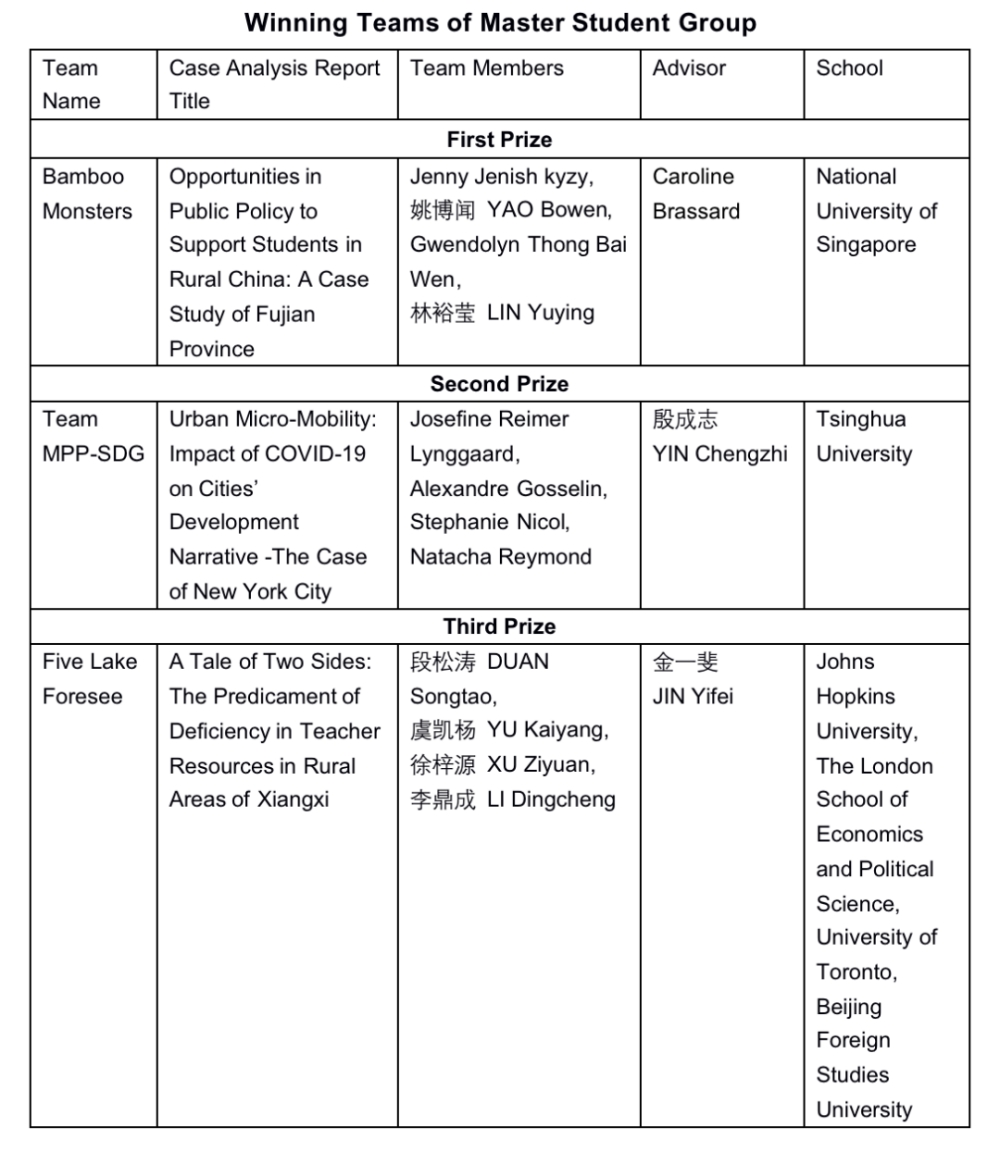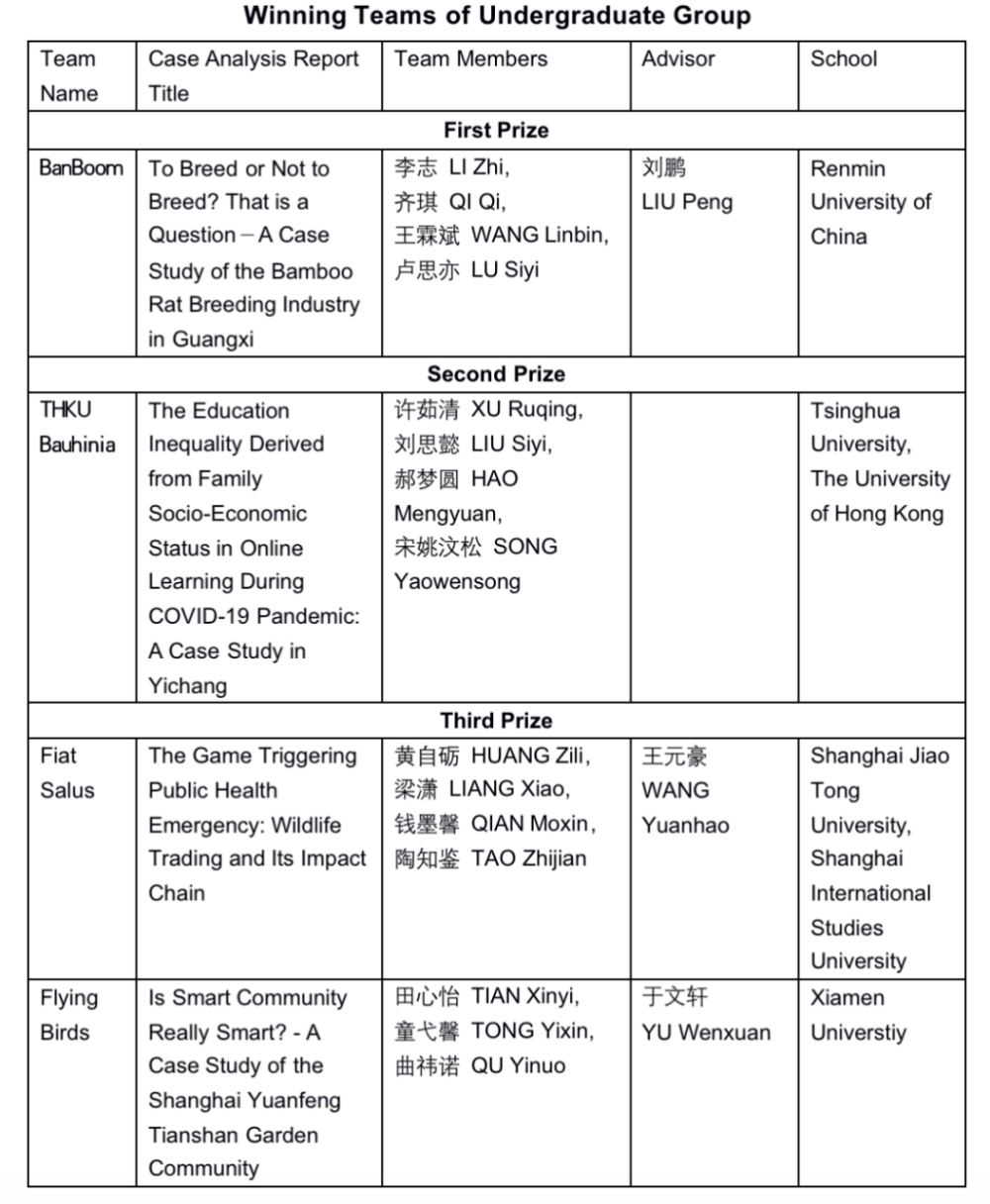On 29th August, the final round of the 2020 Tsinghua University International Case Analysis Competition of Public Policy on SDGs was held by the China Case Center for Public Policy & Public Management of School of Public Policy & Management, Tsinghua University and the TUSDG, with the sponsorship and support of the Reckitt Benckiser Group (RB Group). 101 finalists competed in the competition online, while more than 7,000 people watched the competition via webcast.
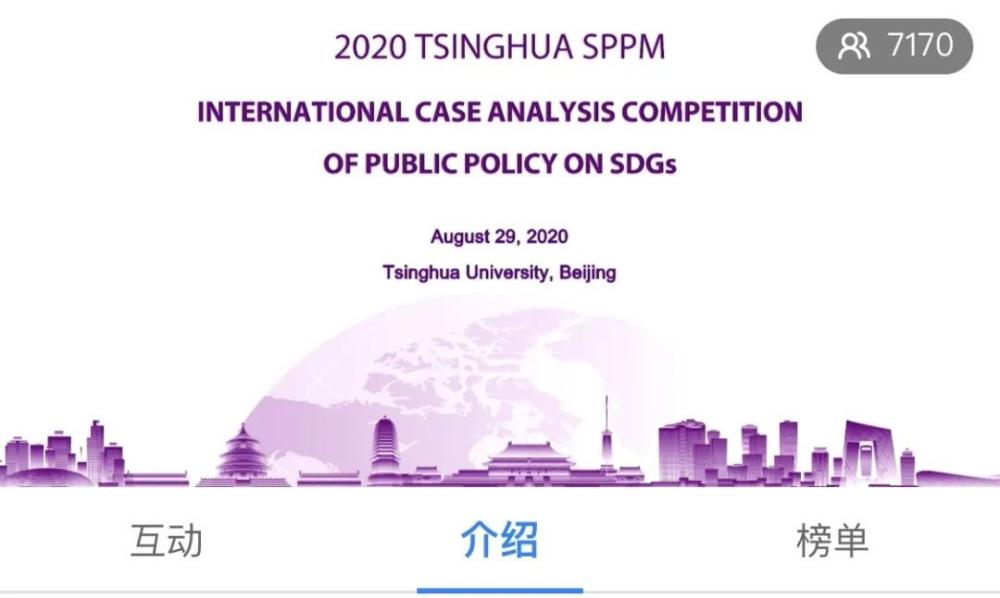
Since its launch in May, the competition has attracted a total of 303 participants from 86 teams from 86 institutions in China, the United States, the United Kingdom, Singapore, Australia, India, South Korea, France, Japan, Canada and other countries. Focusing on the 17 United Nations SDGs, the participating teams, through on-site research, online interviews, case writing and case analyses, considered the issues of sustainable development from an international perspective and a professional viewpoint of public policy, documented and summarised the vivid practices of the places where the cases took place in the implementation of the UN SDGs, and discussed how to solve the development problems of the three dimensions, namely, the society, the economy and the environment, and shift to the path of sustainable development in an integrated way and shift to the path of sustainable development, eradicate poverty through concerted actions, protect the earth and ensure peace and prosperity for human beings. After more than three months of meticulous preparation and two rounds of fierce competition, a total of 12 master's student teams and 16 undergraduate teams stood out and successfully entered the final round.
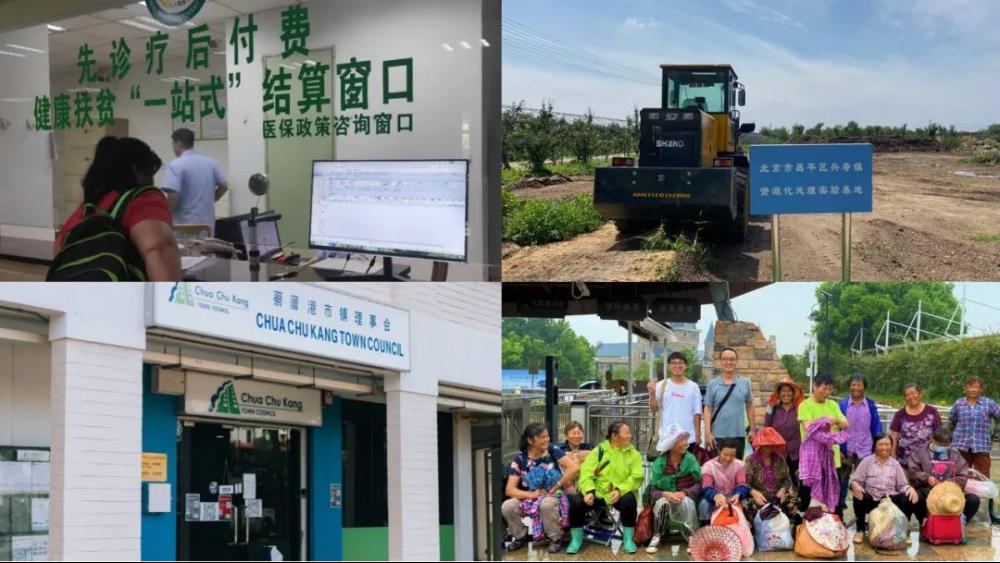
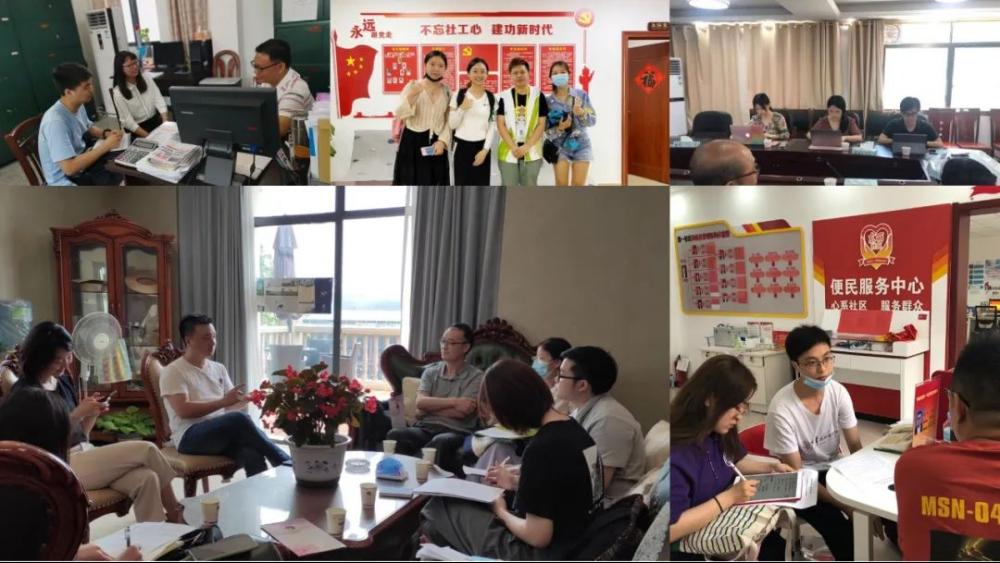
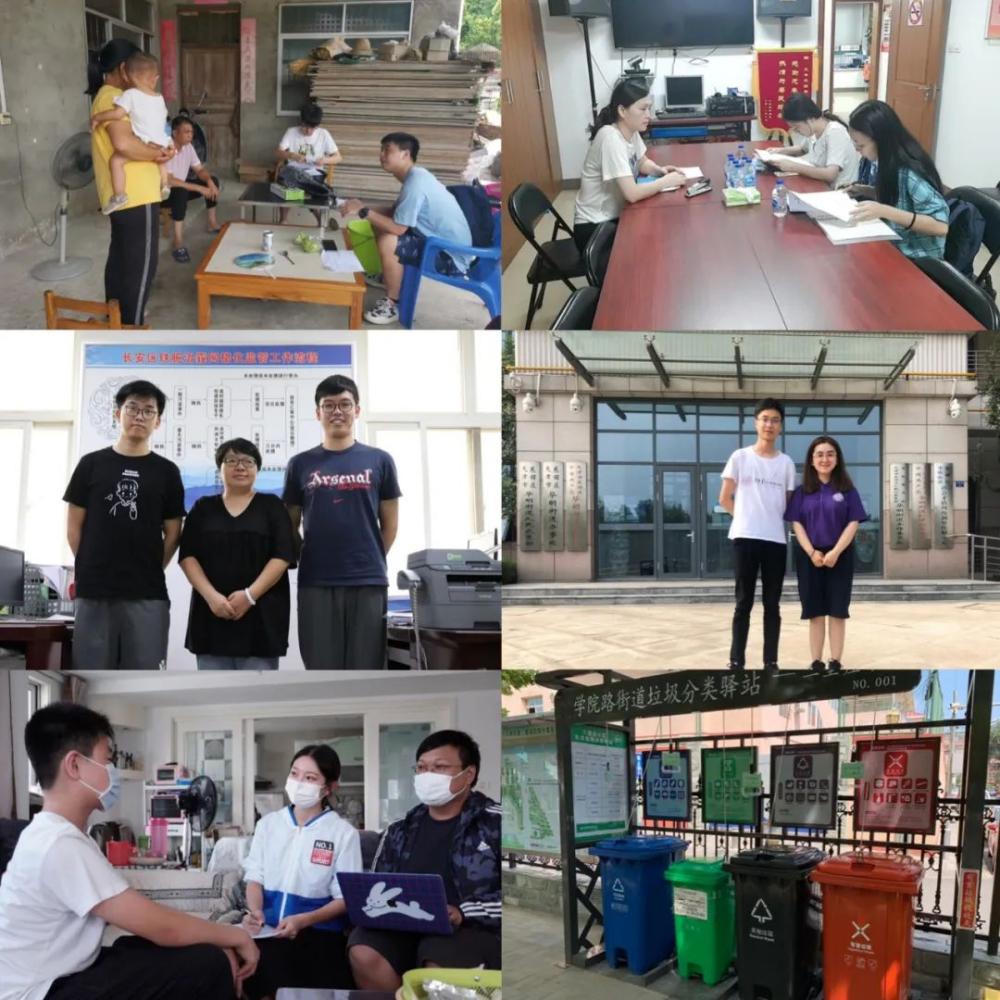
Research style of the participating teams
Master's Student Group Final
The final round of the Master's Student Group was held in the morning of 29th, with Professor Zhu Xufeng, Associate Dean of Tsinghua School of Public Policy & Management and Executive Director of TUSDG, Associate Professor Mei Ciqi and Associate Professor Zheng Zhenqing of Tsinghua School of Public Policy & Management as the judges. The participating teams made detailed presentations on topics such as protection of migrant workers' rights and interests, urban environmental regulatory challenges, housing problems in urban villages, the plight of rural teacher shortage, fisheries development, deforestation, community governance, etc., and answered on-site questions from the three judges.
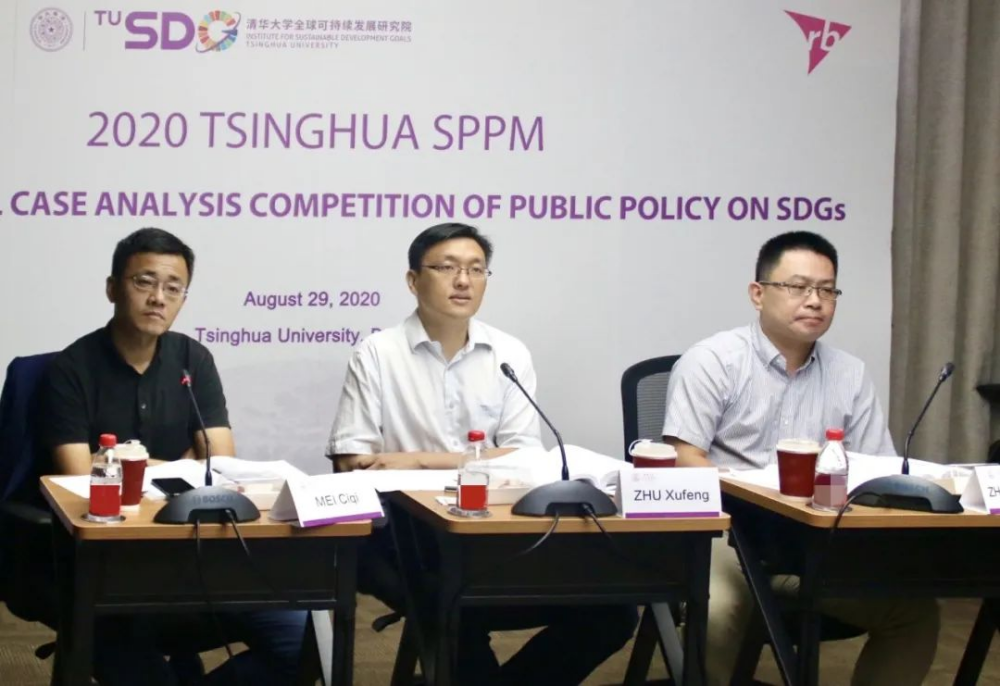
Judges for the Master's Student Group
(From left to right: Mei Zhiqi, Zhu Xufeng, Zheng Zhenqing)
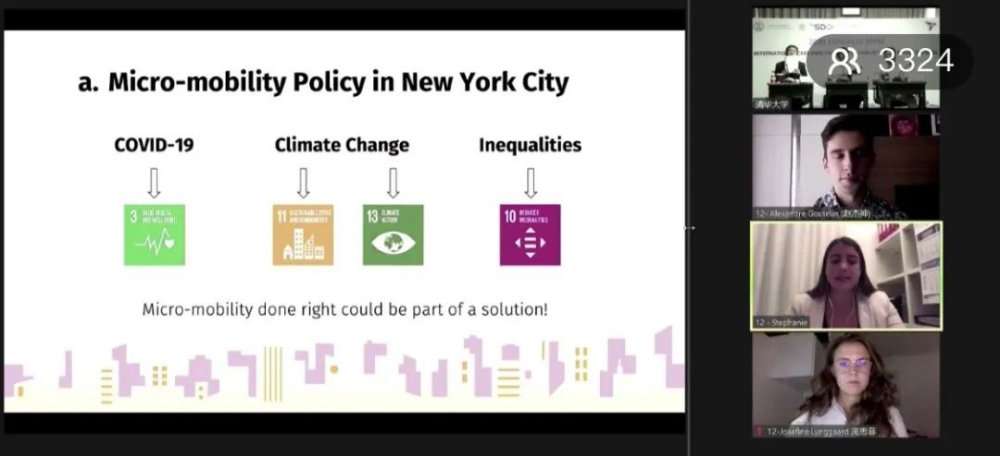
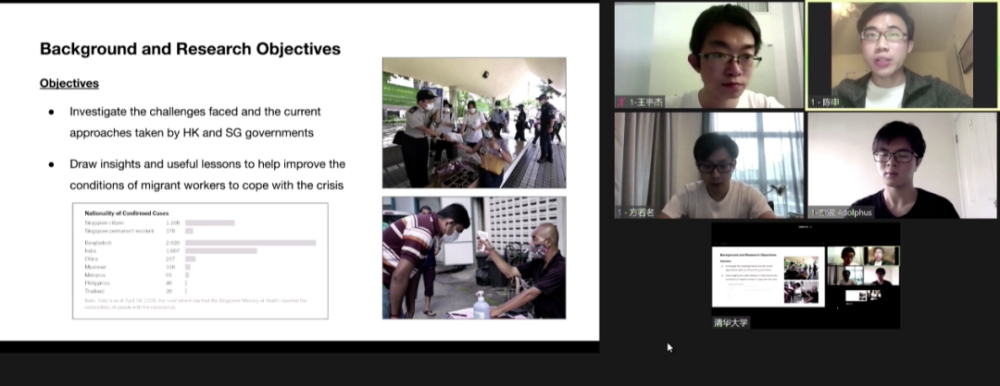
Screenshot of the Master's student group competing
Undergraduate Final
The afternoon of 29th was the final round for the undergraduate group, with Professor Poon Kit, Associate Professor Li Yingbo and Assistant Professor Zhang Penglong from Tsinghua School of Public Policy & Management as the judges. Focusing on the topics of antibiotic pollution, rubbish classification, smart community building, wildlife trading, urbanisation model and sustainable development, dietary health on campus, online teaching and educational equity during an epidemic, the ground floor economy, and internet plus health poverty alleviation, the participating teams demonstrated the highlights of their group's case studies and answered the questions raised by the three judges.
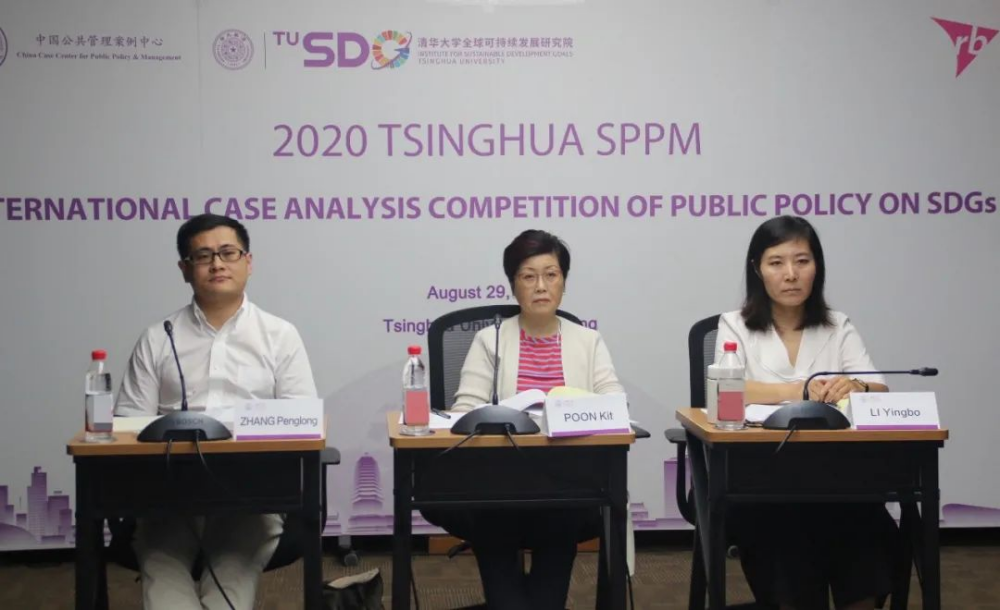
Undergraduate Group Judges
(From left to right: Zhang Penglong, Poon Kit, Li Yingbo)
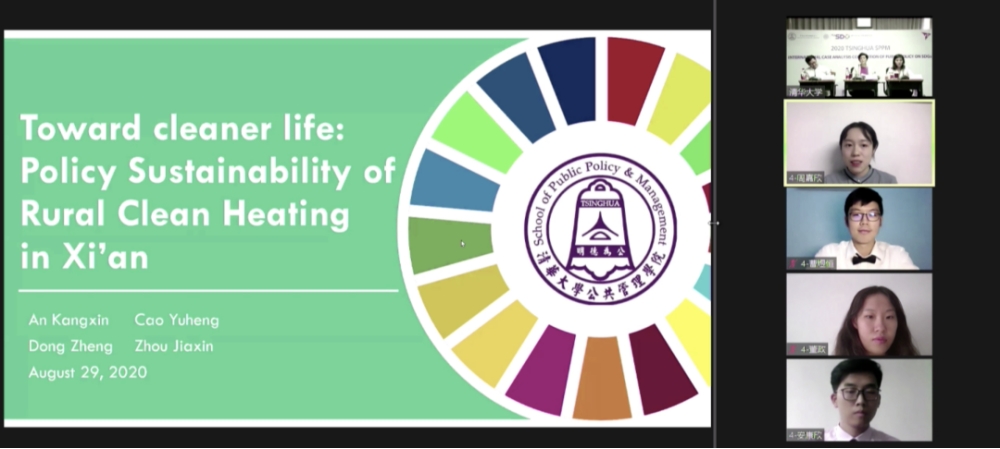
Screenshots of undergraduates group competing
Awards ceremony
An award ceremony was held in the evening of 29th, attended by Zhu Xufeng, Associate Dean of Tsinghua School of Public Policy & Management, Gu Lei, Vice President of RB Mead Johnson Nutrition Greater China, Mu Ling, Director of China Case Center for Public Policy & Public Management, Zheng Zhenqing, Associate Professor of Tsinghua School of Public Policy & Management, and Zhang Penglong, Assistant Professor, as well as all the finalists through a combination of online and offline methods.
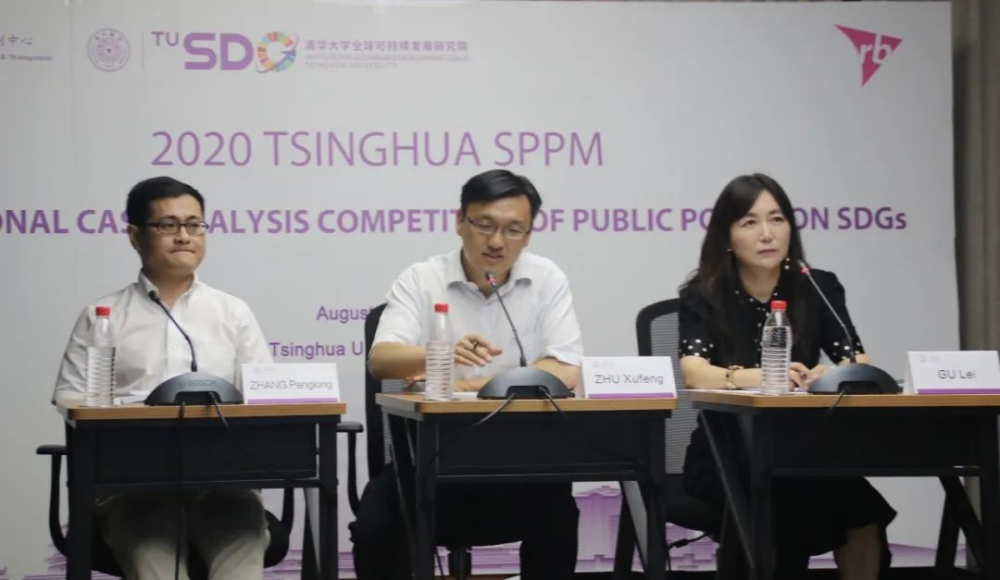
Award Ceremony Offline Site
On behalf of Tsinghua University School of Public Policy & Management, Zhu Xufeng, Associate Dean of Tsinghua University, firstly expressed his heartfelt thanks to RB Group for its generous sponsorship. He believed that the success of the cooperation between the two parties was due to their common vision and firm belief in research, talent cultivation and international exchanges in the field of SDGs, and said that the Case Competition is an important step and witness on the road of cooperation between the two parties in the future, hoping that the two parties will join hands in the future to help promote the sustainable development of the world. At the same time, he pointed out that the sudden spread of the Covid-19 pandemic in various countries continues to spread, the global economy has suffered a heavy setback, people's daily lives are seriously hampered, and the implementation of the United Nations SDGs is facing unprecedented challenges. Against this background, the competition was organised in the hope of turning this crisis into an opportunity to encourage the new generation of young students to put their knowledge, courage, action and innovation into practice and contribute to the implementation of the SDGs.
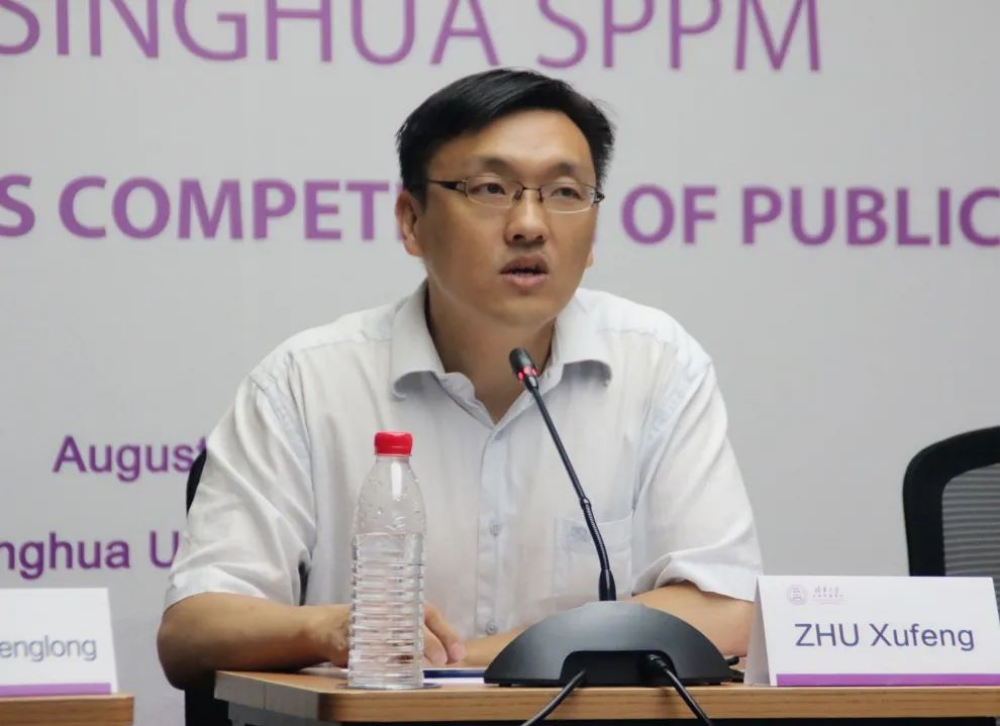
Speech by Vice President Zhu Xufeng
Vice President Gu Lei then delivered a speech. She congratulated the success of the event and said she was glad to see that outstanding young people are passionate about sustainable development issues, have their own thoughts on the challenges facing the real world today and are committed to finding solutions to sustainable development issues, which is common to the beliefs upheld by RB Group. RB is committed to building sustainable solutions across its three business areas of Hygiene, Health and Nutrition to help people meet the challenges posed by global trends such as urbanisation, climate change and digital transformation, with the launch of the RB Fight for Access Fund and the establishment of the Reckitt Global Hygiene Institute (RGHI). The company also launched the RB Fight for Access Fund and established the Reckitt Global Hygiene Institute (RGHI) to actively support global health and hygiene. Gu Lei also pointed out that he hopes that civil society, governments, suppliers, consumers and young people will work together to address and solve the challenges facing the world today.
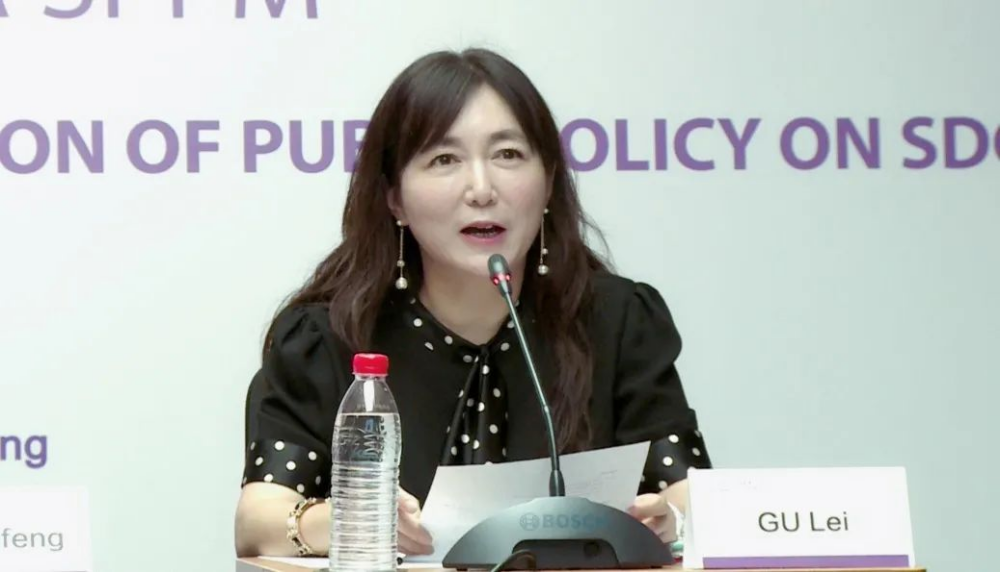
Speech by Vice President Gu Lei
Director Mu Ling thanked Vice President Gu Lei for his presence and presented a souvenir of Tsinghua University to RB Group on behalf of the competition organisers.
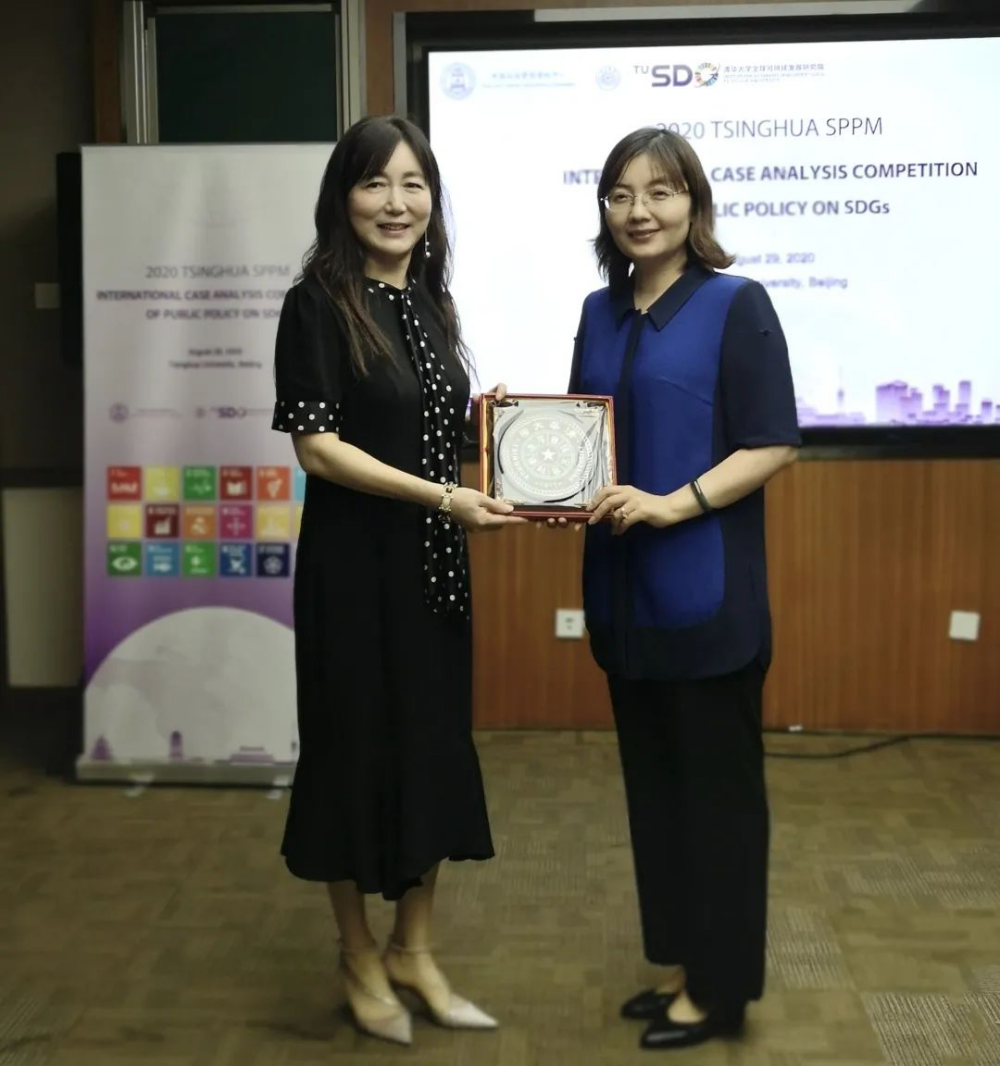
Director Mu Ling presents a souvenir to Vice President Gu Lei
Then, the judges and teachers commented on the performance of the final team. Zhang Penglong summarised the wonderful performance of the contestants with three key words: firstly, caring for the society. The students' case selection reflected their deep concern for the poor, the disadvantaged, rural villagers, urban residents and other types of people. Second, active practice. The case studies of the contestants were based on solid research, students talked with local residents, interviewed government officials, distributed questionnaires, conducted surveys, and conducted in-depth thinking in active action and practice. Third, teamwork. During the research process and at the competition site, everyone demonstrated the team spirit of sincere cooperation and mutual help.
Zheng Zhenqing believes that there are no losers in the competition, and believes that by participating in this international tournament, students will be able to deeply appreciate the charm of teamwork, learn new knowledge, exchange different ideas, and deepen their understanding and application of academic theories, all of which are very valuable gains.
Zhu Xufeng said that the participants' case selection was very novel and innovative, and he put forward three suggestions for students to conduct case studies, which he believed would be helpful for their future research, study and work: Firstly, they should learn to use the comparative research method to compare the similarities and differences between the cases they studied and those in other parts of China and even the world, and to distil the uniqueness and common features of the cases. The second is to have critical thinking. When interviewing stakeholders, such as civil servants, enterprises and NGOs, students will obtain many new ideas and information, and they should uphold independent judgement and have a critical eye, and conduct in-depth and independent research and analysis of the information they have obtained. Thirdly, in the case analysis, students should focus on the thinking of policy significance. Students should not only focus on one case, but also, through in-depth excavation and exploration, think about the validity of the model of this case in other places, and explore whether the experience of this case can be generalised and applied to other parts of the world.
Afterwards, Zhu Xufeng and Gu Lei grandly announced the winners of the Master's and Undergraduate categories of the competition, and the participants of the first prize team delivered their speeches. Qi Qi from Renmin University of China expressed her gratitude to the organisers and her teammates, and shared her deep feelings about conducting field research. Jenny from National University of Singapore expressed that she was very happy to be in an enthusiastic and international team and try to solve real problems with her teammates by applying what she had learnt, and she also believed that participating in the competition was not the goal and the end of the competition, and she would continue to work hard to contribute to the solution of the problems in the future.
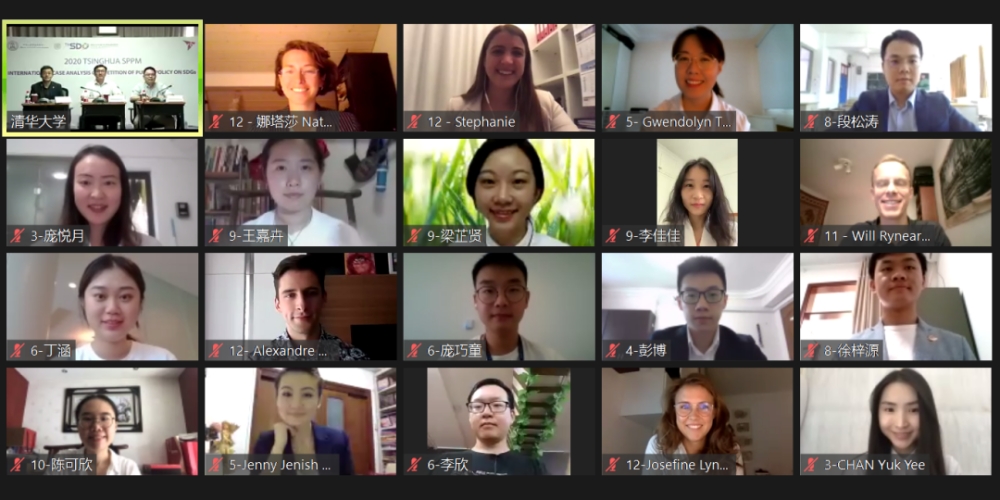
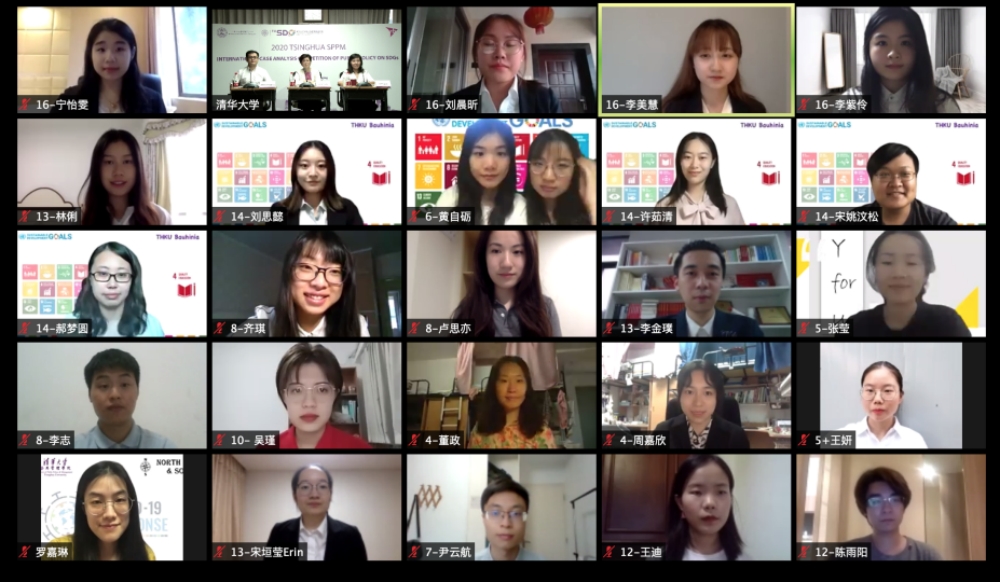
Group photo of finalists
List of winners
